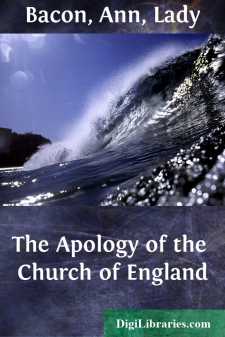Categories
- Antiques & Collectibles 13
- Architecture 36
- Art 48
- Bibles 22
- Biography & Autobiography 815
- Body, Mind & Spirit 144
- Business & Economics 28
- Children's Books 18
- Children's Fiction 14
- Computers 4
- Cooking 94
- Crafts & Hobbies 4
- Drama 346
- Education 58
- Family & Relationships 59
- Fiction 11835
- Games 19
- Gardening 17
- Health & Fitness 34
- History 1378
- House & Home 1
- Humor 147
- Juvenile Fiction 1873
- Juvenile Nonfiction 202
- Language Arts & Disciplines 89
- Law 16
- Literary Collections 686
- Literary Criticism 179
- Mathematics 13
- Medical 41
- Music 40
- Nature 180
- Non-Classifiable 1768
- Performing Arts 7
- Periodicals 1453
- Philosophy 65
- Photography 2
- Poetry 896
- Political Science 203
- Psychology 44
- Reference 154
- Religion 515
- Science 126
- Self-Help 85
- Social Science 83
- Sports & Recreation 34
- Study Aids 3
- Technology & Engineering 60
- Transportation 23
- Travel 463
- True Crime 29
Our website is made possible by displaying online advertisements to our visitors.
Please consider supporting us by disabling your ad blocker.
The Apology of the Church of England
by: Ann Bacon
Categories:
Description:
Excerpt
INTRODUCTION.
The great interest of Jewel’s “Apology” lies in the fact that it was written in Latin to be read throughout Europe as the answer of the Reformed Church of England, at the beginning of Queen Elizabeth’s reign, to those who said that the Reformation set up a new Church. Its argument was that the English Church Reformers were going back to the old Church, not setting up a new; and this Jewel proposed to show by looking back to the first centuries of Christianity. Innovation was imputed; and an Apology originally meant a pleading to rebut an imputation. So, even as late as 1796, there was a book called “An Apology for the Bible,” meaning its defence against those who questioned its authority. This Latin book of Jewel’s, Apologia Ecclesiæ Anglicanæ—written in Latin because it was not addressed to England only—was first published in 1562, and translated into English by the mother of Francis Bacon, whose edition appeared in 1564. That is the translation given in this volume. The book has since had six or seven other translators, but Lady Ann Bacon’s translation was that which presented it in Queen Elizabeth’s time to English readers, and it had the advantage of revision by the Queen’s Archbishop of Canterbury, her coadjutor in the establishment of the Reformed Church of England, Matthew Parker. It was published, with no name of author or translator on the title-page, as “An Apologie or answere in defence of the Churche of Englande, with a briefe and plaine declaration of the true Religion professed or used in the same.” The book was prefaced by a letter, “To the right honorable learned and vertuous Ladie, A. B.” [Ann Bacon] “M. C. wisheth from God grace, honoure, and felicitie,” where M. C. signifies Matthew Cantuar, Matthew Parker, Archbishop of Canterbury, whom Lady Ann Bacon had made her judge, and whose judgment, the letter says, her book had singularly pleased.
Lady Ann Bacon was the second daughter of Sir Anthony Cooke, who was tutor to King Edward VI. Sir Anthony gave to his five daughters a most liberal education. His eldest daughter, Mildred, married Sir William Cecil, afterwards Lord Burleigh, while Ann became the second wife of the Lord Keeper, Sir Nicholas Bacon. Their father had made Mildred and Ann two of the most learned women in England.
John Jewel was forty years old when he wrote the “Apology.” He was born in Devonshire in 1522, on the 24th of May, at the village of Buden, near Ilfracombe. He studied at Oxford, where he became tutor and preacher, graduated as B.D. in 1551, and was presented to the rectory of Sunningwell. At the accession of Queen Mary he bowed to the royal authority, but he was a warm friend and disciple of Peter Martyr, who had come to England in 1547, at the invitation of Edward VI., to take the chair of Divinity at Oxford. On the accession of Queen Mary, Peter Martyr (who was born at Florence in 1500, and whose family name was Vermigli) returned to Strasburg, and went thence to Zurich, where he died in 1562. Jewel, repenting of his assent to the new sovereign’s authority in matters of religion, followed his friend Peter Martyr across the water, and became vice-master of a college at Strasburg. Upon the accession of Elizabeth, in 1588, Jewel came back, and he was one of the sixteen Protestants appointed by the Queen to dispute before her with a like number of Catholics.
In 1559 John Jewel was appointed a commissioner for securing, in the West of England, conformity with the newly-arranged Church service, and he had to see that the Queen’s orders were obeyed in the churches of his native county. Before the end of the same year he was consecrated Bishop of Salisbury. He was most zealous in performance of all duties of his charge. To his good offices young Richard Hooker owed his opportunity of training for the service of the Church. Among Jewel’s writings, this Apology or Defence of the Church of England was the most important; but he worked incessantly, and shortened his life by limiting himself to four hours of sleep, taken between midnight and four in the morning. Bishop Jewel died on the 21st of September, 1571, before he had reached the age of fifty....


